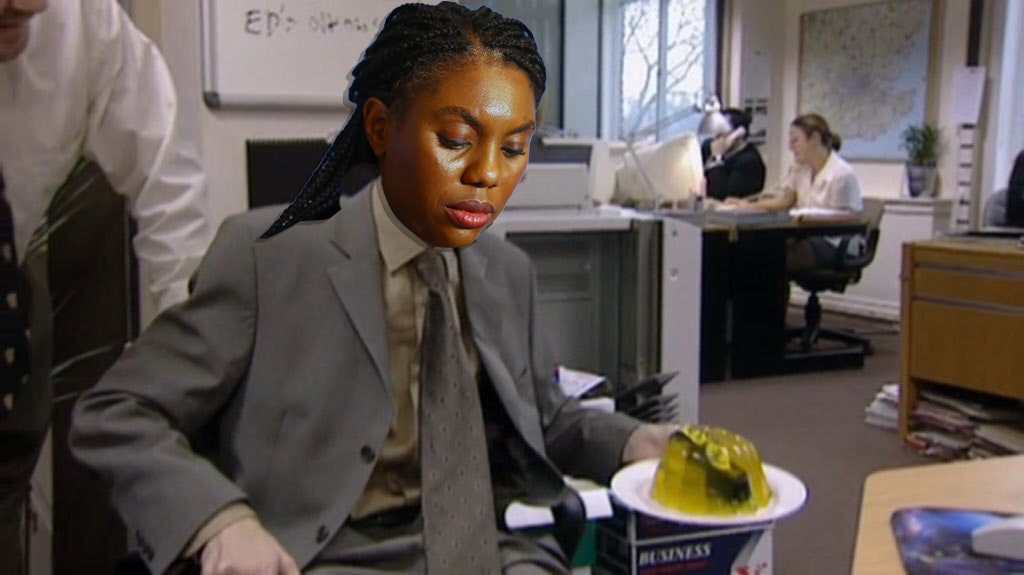“Welfare reform, let’s be honest, is never easy,” Liz Kendall told a sweltering House of Commons, “especially for Labour governments.” Whatever else was said on Tuesday afternoon, this was indisputably true.
The government’s approach to its welfare bill has turned from defiance of rebels on its own side to fighting retreat to headlong flight. Even as the debate was happening, there was talk of further concessions to come before the vote.
“Unlike the previous administration, this government must not and will not duck the big challenges facing this country,” Kendall went on, although quite a few Labour MPs would make clear in the coming hours that ducking big challenges was why they’d come into politics (they didn’t put it quite like that).
The welfare system, Kendall warned, had “fraying support”. This is not precisely correct. Voters strongly support the bits of the system that give money to them. (A previous government once tried to remove a childcare tax break that was used by pretty much every political journalist under 45, and I have never seen a briefing session like the one that followed the announcement.) What the public is less sure about is everyone else’s welfare payments. The great achievement of Nigel Farage has been to reassure Reform supporters that his promises to cut welfare spending will only affect other people.
“Labour’s historic mission,” Kendall said, “is to get more people into good jobs.” Not all her colleagues agree. Dan Carden, speaking a little later, said it was to help working people stand up to “their class enemies”. The Conservatives laughed loudly at Kendall’s words, and for the first time the Labour benches were roused. It’s one thing for them to slag the government off, but they’re not going to let the Tories do this.
Kemi Badenoch had decided that she, not shadow work and pensions secretary Helen Whately, would reply to Kendall. She does this quite a lot, big-footing junior colleagues when there’s a high-profile moment on their patch. We’ve all worked with people like this, and it’s a credit to the patience of the shadow cabinet that they put up with it. Or perhaps they’re quietly working on their revenge, the day when Badenoch arrives at her desk to find all her pens encased in jelly.

“We are staring down the barrel of a crisis that no serious government can ignore,” she began, helpfully explaining why the government of which she was a part had been content not to address the issue.
Emily Thornberry asked Badenoch at what stage in the past 14 years she’d thought the welfare system was working well. Badenoch replied by explaining they’d inherited a bit of a mess in 2010. Given the scorn she pours on any Labour minister who talks about the situation they found when they entered government 12 months ago, this really was a bit much.
Graham Stuart, a Conservative, pointed out that “the chief architect” of the government’s current mess was Chancellor Rachel Reeves. “The fact that she is not here to face up and take responsibility is all we need to know about her,” he said. Badenoch took up the theme. “She marches them up and down the hill all the time,” she said, warning loyal MPs who defended government policy that “at the last moment, they abandon you.” Mark Ferguson, one such Labour loyalist, pointed at the MPs behind her. “They’ll abandon you,” he shouted, loudly enough to be heard in the gallery.
On the whole, Badenoch’s position was probably helpful to the government. There’s nothing like being patronised by a Conservative to remind a Labour MP whose side they’re on. As I’ve said before, a smarter tactic would have been to announce the Tories would vote with the government, driving a larger wedge between Keir Starmer and his increasingly doubtful MPs.
Some seem to have given up on him. Rachel Maskell was sponsoring the amendment opposing the bill. “These Dickensian cuts belong to a different era and a different party,” she said. After the shoutiness that had accompanied Badenoch, Maskell was heard in near silence. “I am my brother’s keeper,” Maskell said. “I cannot pass by on the other side.”
The Tory benches rapidly emptied: this was, fundamentally, a debate within Labour. There was speech after speech denouncing the cuts, and the occasional one in support of the bits of the bill that Labour MPs like, but these debates aren’t always a guide to the vote.
Later concessions were offered on the changes to Personal Independence Payments. Instead of making the change to eligibility in November next year, a review by Work and Pensions Minister Sir Stephen Timms will now consider the criteria before any changes are made. When Kemi Badenoch launched a “review“ to delay the decision of whether the Tories would leave the ECHR, Labour derided it as “booting [it] into the long grass“. But on a day like today, that has real appeal. Perhaps the DWP team could boot it slightly past the long grass and into a cold stream.
Kendall closed her speech on what was intended to be an upbeat note. “Above all this government is determined to give people hope that tomorrow will be better than today,” she said. That’s certainly what ministers would like, anyway.











